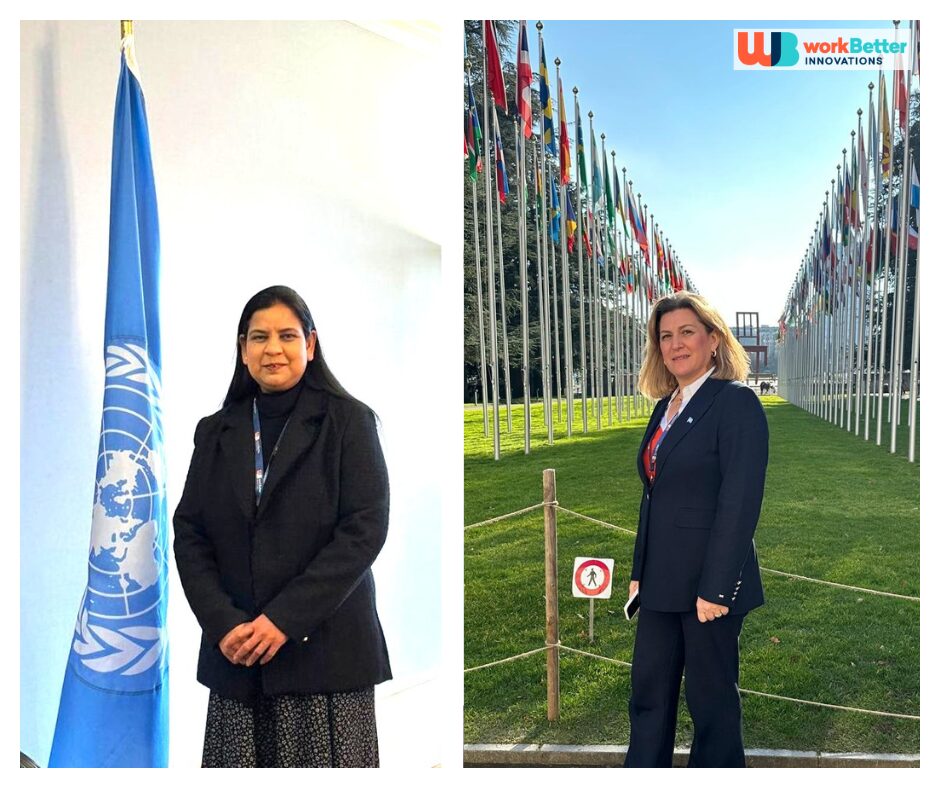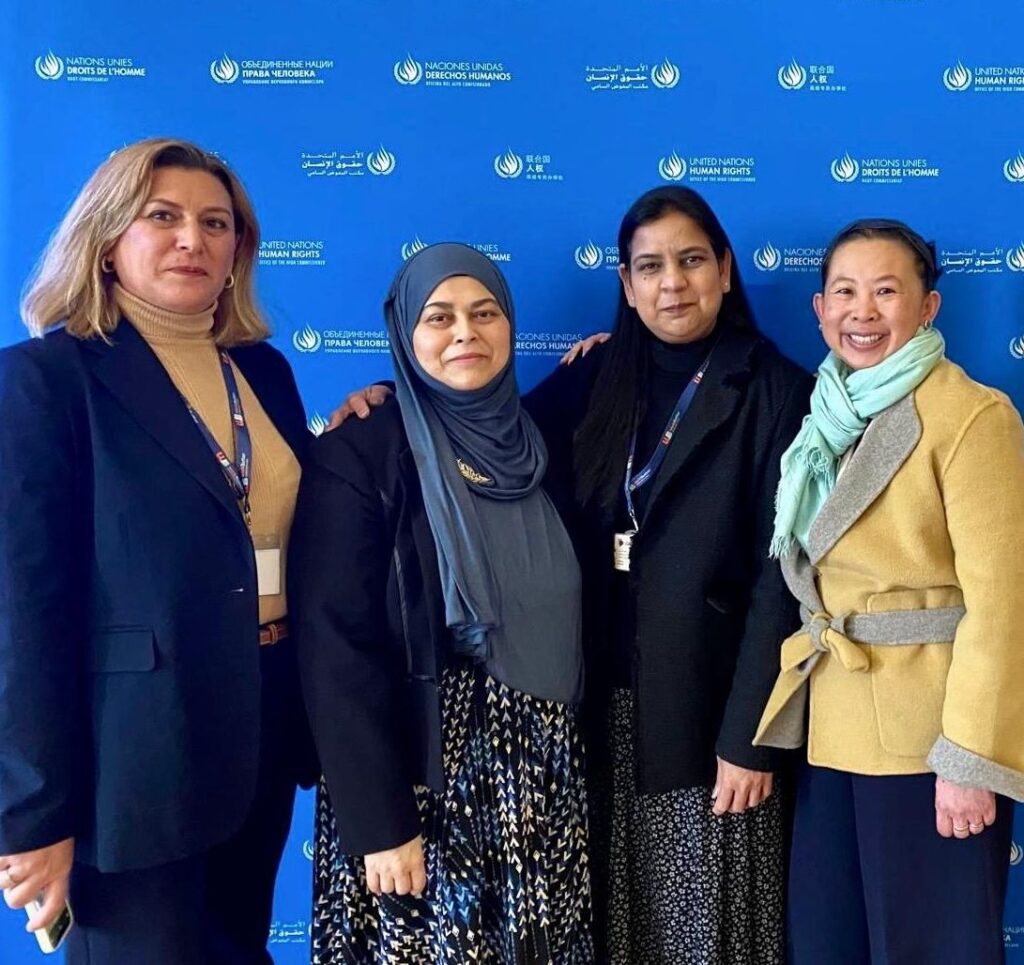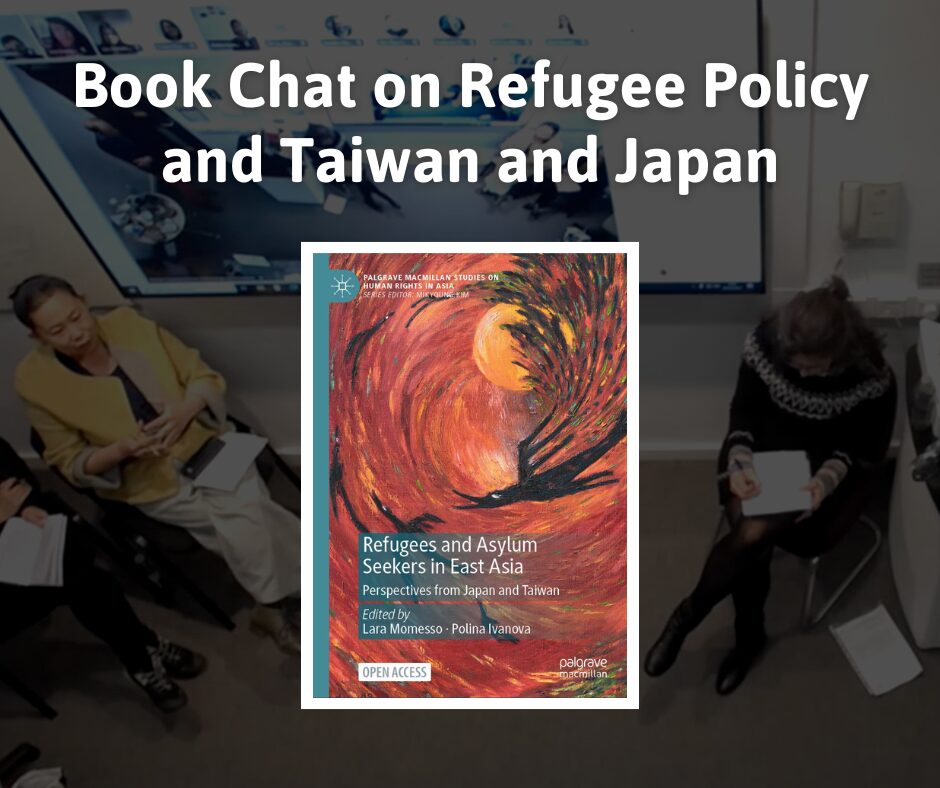26 March 2025. WBI Director of Community Engagement, Anita David, reflects on her participation in a national Community Participatory Action Research (CPAR) project, along with our community researcher Fatma Tuylu. Their research training started in Oxford in October 2024. In this blog, Anita and Fatma write about the impact of raising the importance of community research to advocate for health equity at the UN in Geneva. You can read their full reflections below:
By Anita David, Director of Community Engagement, and Fatma Tuylu, Community Researcher
“In December 2024, we received a grant from the Equality and Human Rights Commission to attend the United Nation’s review of the UK’s implementation of a key human rights treaty in Geneva. Last month, we participated in the civil society advocacy, more details on our website: WBI Visits the UN in Geneva and Joins Civil Society Advocacy for UK’s Human Rights Review.
After presenting our recommendations to the UN committee, we observed discussions between the UN Committee on Economic, Social, and Cultural Rights (CESCR) and the UK delegation. Recordings of both sessions are available online here and here.
As part of this process, we were required to submit a written report to the UN, which we submitted with the Southeast and East Asian Centre earlier this year. You can access the report in the UN treaty body database here. In paragraphs 33-34 of our submission, we emphasised the importance of a community-based participatory research model in gaining a deeper understanding of how health disparities affect different communities.
We highlighted the positive impact of the Community Participatory Action Research (CPAR) programme in advancing this research model. The programme takes a long-term, inclusive approach to addressing health inequalities by training and equipping local researchers from minority ethnic communities.
We are incredibly grateful to be part of CPAR Cohort 3, which focuses on health inequalities faced by marginalised communities. Our research journey began in Oxford last October in collaboration with the University of Reading, the Scottish Community Development Centre, the Institute for Voluntary Action Research (IVAR), and NHS England – South East School of Public Health.
Throughout this journey, we have received invaluable guidance and mentorship from the University of Reading and the Scottish Community Development Centre. After carefully planning our research, refining our methodology, collecting data, and initiating data analysis, we are now preparing for the next phase. In the coming months IVAR will support us in developing key findings and formulating recommendations, as well as assist with action planning and organising stakeholder presentations.
It has been inspiring to witness how the CPAR training not only empowers community researchers but also influences national policy and is being recognised on an international platform.”






